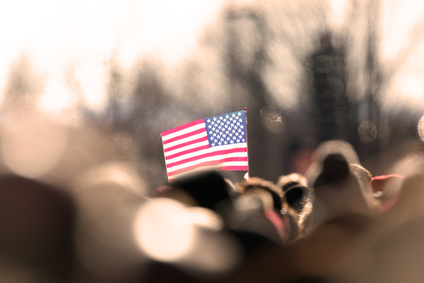Meet The Powerful Conservative Think Tank Behind Trump’s America

Whether people like or dislike U.S. president-elect Donald J. Trump, few would dispute the fact that he will soon be one of the most powerful political figures in the world.
Many feel that a Trump presidency is a great unknown. To some extent this is true. As former U.S. Secretary of State Henry Kissinger said after meeting with Trump privately, the new president will be unique in coming to power without being beholden to any group to which he owes his election. Since he is not a professional politician, Trump is not personally networked with all the individuals he would want to consider for service in his administration.
Most of his relatively small circle of trusted associates have been with him from at least the beginning of his presidential campaign, but even they are not necessarily well connected with the best candidates for the roughly 4,000 executive branch positions that Trump will need to appoint.
Yet Trump has been making cabinet appointments rather quickly by recent presidential standards. To do so, he has been reaching out beyond that small circle which guided him, in such an unorthodox manner, to the Republican Party nomination and to success in the general election.
In particular, the Wall Street Journal reports that Trump has been relying significantly on the Heritage Foundation, a conservative think tank that has been around for over 40 years and that prizes free enterprise, limited government, individual freedom, "traditional American values," and a strong national defence.
I have known the Heritage Foundation folks for close to 15 years. Some of their policy recommendations would clearly be deemed too conservative for the Canadian context, but even their foes would admit that they are an incredibly powerful and well-organized group. Some of their proposals have even been adopted by Democratic presidents.
For example, President Bill Clinton's welfare reform was based on a Heritage proposal. Even the idea for an individual mandate to buy health insurance — the basis for the 2010 Affordable Care Act also known as Obamacare — originated in a 1989 paper from the Heritage Foundation, although they later disavowed the Obamacare implementation of the idea.
The Politico website confirms that the Heritage Foundation has emerged as a "driving force" in the personnel process at the Trump transition team. It cites one lobbyist to the effect that Heritage is "absolutely the fulcrum" of the staffing search now under way. The Politico article names no fewer than five senior Heritage officials working directly with the transition team, and this does not count "other prominent activists and thinkers" formerly associated with it.
Of special interest is James Carafano, the transition team's primary aide for State Department matters. He is the Heritage Foundation's vice president for foreign and defence policy studies, and he has already arranged meetings with key diplomats from Europe, Canada and other traditional American allies in order to sound out their concerns.
Like many other Trump appointees, Carafano had a military career, serving 25 years in the army before retiring at the rank of lieutenant colonel. He was head speechwriter for the army chief of staff and has experience in military strategy and budgeting matters.
The foundation avoided direct criticism of Trump this year, establishing a relationship based on such tasks as helping to identify potential Supreme Court nominees. Highly-placed foundation officials with extensive government experience are continuing to help out.
Trump's willingness to work with the Heritage Foundation has already calmed some of the fears that the new administration would take a strong anti-free-market approach. Despite concerns that a Trump presidency could be all over the place, the professional and principled presence of the Heritage Foundation certainly makes me less worried that this might be the case.
My recent trip to Washington to confer with top Heritage Foundation officials bears this out. These people are serious, and the people around Trump with whom they are working are also serious.
I am confident that the U.S. will still be recognizable to Canadians, and our prime minister will be able to establish a working relationship with Trump on the basis of practical projects and the enduring interests our two countries have in common.
Michel Kelly-Gagnon is President and CEO of the Montreal Economic Institute. The views reflected in this op-ed are his own.

